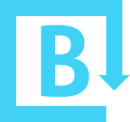Making a lateral career move can feel disappointing — as if you’re giving up on your current trajectory or that you’ve wasted your time. With the right attitude, however, a lateral move can be an incredibly positive step in your career path. Sometimes a lateral move is the key to accomplishing professional advancement goals, as was the case with Margot Hart of Travelers Haven.
“Both my career trajectory and professional growth skyrocketed when I stepped out of the ‘traditional path’ for a sales leader,” said Hart, whose path included movement from sales to strategy to pricing and who has served in three different VP roles. Her lateral moves allowed her to pick up the skills and experience she needed to be promoted to her target VP rank.
Brandfolder’s Gillian Weisenfluh made a lateral career move from sales to marketing after getting some behind-the-scenes experience at her company and learning where her true passions lay. With the help of open communication with her supervisors, she was able to make a lateral move to a job that would get her the marketing experience she needed within the company.
While each of the four women Built In Colorado spoke with had different reasons for making their lateral career moves, each considers the move a positive change in regard to their career and personal satisfaction. To learn how they turned their lateral career moves into vertical growth, listen to the stories of Frontsteps Supervisor of QA and Analytics Lillian Elek, Travelers Haven VP of Sales Margo Hart, Form Image Recognition Data Program Manager Jackie Arlew and Brandfolder Demand Generation Coordinator Gillian Weisenfluh.
Making a lateral career move can feel pretty scary. How did you know it was the right move for you?
I knew moving into my current position was right for me as it aligned with what I wanted to achieve as an individual and with the company. I love data and organization and my managers made it very clear they wanted to see me grow by helping me accomplish my goals, which was a key factor as well. While working in my prior position I was always reaching out to colleagues in other departments to learn about the inner workings of our product and how our databases and integrations are set up. I was trying to learn as much as I could and see if I could help out. During a transition of management in the department I vocalized my need to move into a role where I could truly put my skills to use and it worked out for the best.
You will be faced with completely new challenges, but at the end of the day if it makes you happy, then you have surely made the right move.”
When it comes to your career trajectory, professional growth or general passion for your job, what has transitioning into this new role unlocked for you?
Transitioning into this new role has opened up a plethora of possibilities and growth opportunities. I am now able to work directly with our Salesforce administrator and leadership team to create more efficient processes while utilizing data. I can test out different software while utilizing my business intelligence and data analytics skills to turn raw data into meaningful results. I am able to deepen my knowledge in data storage solutions, ETL processes and writing code. These are all tasks I am truly passionate about and enjoy doing. Overall, this position has unlocked my ability to be a part of business operations, and I am beyond grateful for that.
What advice do you have for other people who are considering making a lateral career move?
Ask yourself: “Will this make me happy?” I understand this seems quite cliché, but I believe that in today’s business culture the focus is not fully directed at happiness when deciphering a career move. You will be faced with completely new challenges and navigating new environments, which can be overwhelming, but at the end of the day if it makes you happy, then you have surely made the right move.
Making a lateral career move can feel pretty scary. How did you know it was the right move for you?
I have always had very open conversations with my leaders regarding my career ambitions. With those clear conversations always came clear — and sometimes harsh — feedback. When I wanted my first VP job, I was told I needed specific experience before that could happen. I worked with leaders at my company to find a lateral move that would give me that exact experience. Eighteen months later, I was promoted to my first VP role and I was better prepared than I would have been if I hadn’t stated my objective, sought feedback and worked to close the gaps in my own experience.
When it comes to your career trajectory, professional growth or general passion for your job, what has transitioning into this new role unlocked for you?
Both my career trajectory and professional growth skyrocketed when I stepped out of the “traditional path” for a sales leader. I made lateral moves into three roles as an individual contributor in sales. Each one taught me about customers, how they work and what they need. Then I went into sales management. From my first sales manager role, I took a side step into strategy — which eventually led to my first director position. From strategy I moved to pricing and then to a sales VP role. I have since sat in three different VP roles with vastly different responsibilities.
When I look at career moves, I ask two questions: First, what can I learn from this role? Second, is the problem I would need to solve interesting enough?”
The cross-functional experience I gained by spending time in strategy and pricing taught me people and project leadership skills that I use every day. It also gave me a different perspective on business than most sales leaders. I learned to solve problems, manage a profit and loss statement, and buy and integrate companies. I learned how to improve margins and leverage data to make wise decisions. I use these skills every day.
When talking to other leaders about potential career moves, each one tells me they can find someone with my sales leadership experience but that my time in pricing and strategy is why they are calling me.
What advice do you have for other people who are considering making a lateral career move?
I would start thinking about job opportunities through a different lens. When I look at career moves, I ask two questions: First, what can I learn from this role? Second, is the problem I would need to solve interesting enough? If I can answer both those questions adequately, then I will make sure the experience I have will set me up for success.
Trust your experience and be curious. Learn and solve hard problems and your skill set will always be indispensable.
Making a lateral career move can feel pretty scary. How did you know it was the right move for you?
I’ve struggled with my career path due to being an idealistic combination of systems thinker, problem-solver and facilitator. Midway through my graduate program earning my masters in social work, living outside of Silicon Valley at the time, I recognized that I would likely do well in an industry like tech that was evidence-based, data-driven, agile and open to innovation or even disruption. I spent my final year examining the impact of personal technologies on homeless college students for my research thesis, and it solidified my interest in this evolving field.
After graduation, I freelanced in many fields and was eventually referred for a remote contracting position annotating images for a SaaS company; through this role I learned as much as I could about machine learning and image recognition, which opened the door for me as a strong candidate when an analyst position within the department became available. Bolstering my new domain-specific knowledge with the applicable frameworks I brought from social work, I rapidly produced high-leverage work and progressed through our department to become a leader for my team.
When it comes to your career trajectory, professional growth or general passion for your job, what has transitioning into this new role unlocked for you?
This role helped me embrace my endless curiosity as a gift to help lead my team. I visualized our entire organization as a collection of overlapping systems with interdependencies and silos, and I’m constantly having to refine my learning as we find issues, incorporate new platforms and adapt to better practices. I determine how these changes fit into our broader context and assess the impact to my team’s situation, partializing macro-level forces into micro-level adjustments to processes and procedures of my workers. With so much collaboration across teams, I heavily rely on my skills in motivational interviewing, emotional validation, smart goal-setting and strengths-based approaches to propose and execute effective plans of action. I get the immense satisfaction of meeting an organizational need, supporting my colleagues and seeing my direct reports, contractors and vendor workforce blossom from being matched to the right task for their skillset with the resources they need to succeed. It is incredibly rewarding to reflect on the improvements we’ve made during the past year — even while dealing with lots of ambiguity and transition — by recognizing and boosting our strengths.
Imposter syndrome is a beast all throughout this journey, especially when you’ve attained your goal and have to figure out your place in a new environment.”
What advice do you have for other people who are considering making a lateral career move?
Imposter syndrome is a beast all throughout this journey, especially when you’ve attained your goal and have to figure out your place in a new environment. Recognize that you’re going to need a lot of help to get ramped up to the skills and knowledge that your competitors might have brought. Ease the burden by making training you a high-leverage activity: Take notes, make diagrams, talk to anyone who will meet you, look things up on the internet to get basic information and keep building on what you learn. As much as possible, try to put things together for yourself and seek correction over instruction. Use an approach like the “helpfulness hierarchy” to build others’ trust in you and your growing abilities.
Also, build relationships based on gratitude and authenticity. Let your new teammates know something about a hobby or interest you have that’s not loaded or personal and share your real self around it. Try connecting with others on something outside of work while still on the clock. Be your authentic self and be generous with gratitude, and trust that with your range of skills and motivated work ethic, you will eventually find a place to make a positive impact.
Making a lateral career move can feel pretty scary. How did you know it was the right move for you?
In July of 2020, I started at Brandfolder as an outbound business development representative. I offered the freedom to think creatively, soon realizing that this strategic and behind-the-scenes work was where my passion was.
While I enjoyed sales, I wanted to pursue a career in marketing. When an opportunity on our marketing inbound business development representative team presented itself, I decided to apply. I had candid conversations with both my current manager and hiring manager about my career goals. After those conversations, it was clear that this role would be a great introduction to marketing, allowing me to establish relationships, learn relevant skills and take on more projects that would foster my goals. Looking back, I realize that the most important part of a lateral career move is finding people who support your growth and can help you take actionable steps toward your long-term goals.
Since joining the inbound BDR team, I was able to develop the skills and qualifications to become the team’s newest demand generation coordinator, proving the value of lateral moves, relationship building and moving towards your true passion!
When it comes to your career trajectory, professional growth or general passion for your job, what has transitioning into this new role unlocked for you?
When I moved into the inbound role, I didn’t know my exact path in marketing as there are so many niches. I decided to focus on mastering the role by continually hitting above goal, improving processes and documenting what worked. This was alongside figuring out what my specific interests were and how I could build skills around these strengths.
Outside of my job role duties, I worked to grow myself by taking on new projects, getting account-based marketing certified, learning Marketo and establishing myself as a trusted member of the team. It’s important to have people who can support you and root for you, so I am very grateful to be at a company that fosters its employees’ career growth and invests time into allowing me to learn.
Looking back, I realize that the most important part of a lateral career move is finding people who support your growth toward long-term goals.”
What challenges did you face while establishing yourself in this new career, and how did you overcome those challenges?
Marketing can be a challenging industry to break into without prior experience. Transitioning into the inbound BDR role allowed me to immerse myself in many of our marketing efforts — lead qualification, email content, paid advertisements, creative content and how we support our sales organization.
I was also presented with opportunities to advance my skill sets. I worked on high-profile initiatives, such as assisting with our account-based marketing strategy — the perfect bridge between marketing and sales. Through this effort, I was able to unlock new skills, build relationships and show my leadership abilities, which ultimately led to the next step in my career within marketing.












